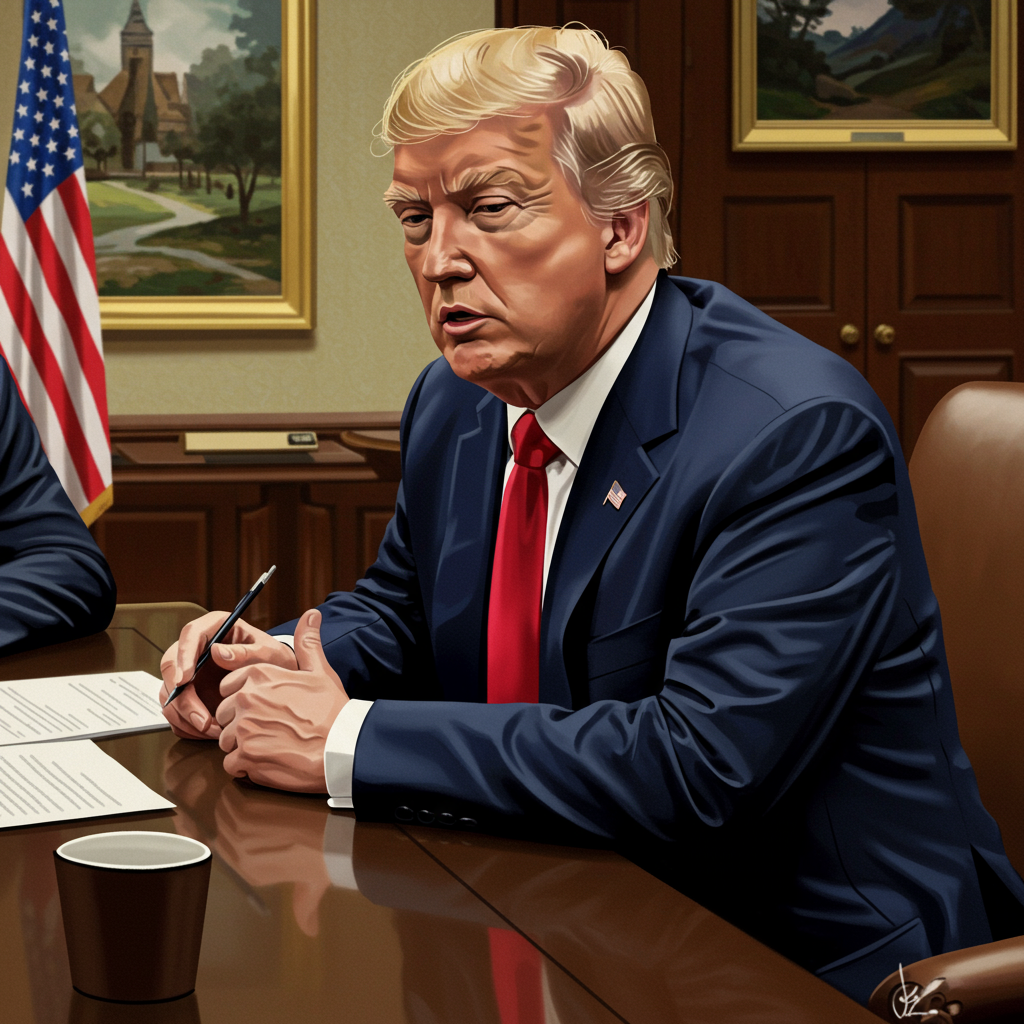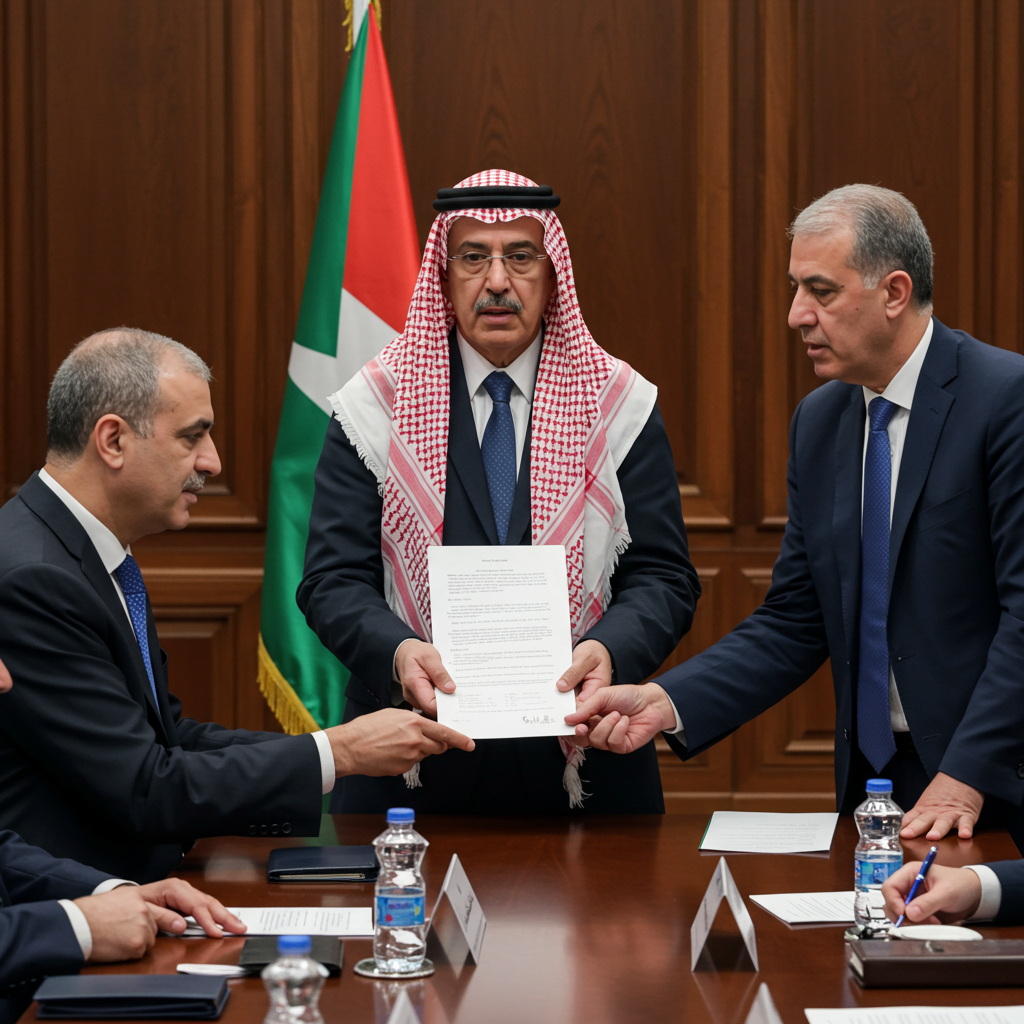The escalating conflict between Israel and Iran has forced a critical foreign policy decision upon US President Donald Trump: whether to commit American forces alongside Israel or maintain distance from another Middle Eastern entanglement. This high-stakes question has exposed a deep and bitter rift within Trump’s inner circle and the broader Republican party, pitting his long-standing “America First” isolationist supporters against powerful hawkish voices advocating intervention.
While campaigning, Trump frequently criticized “stupid endless wars.” However, he has also repeatedly asserted that Iran “can’t have a nuclear weapon,” a stance that clashes directly with his non-interventionist rhetoric as tensions with Iran surge.
The Expanding Conflict Context
The current crisis ignited with Israeli strikes targeting Iranian nuclear and military sites. Dubbed “Operation Rising Lion,” Israel justified these actions by claiming Iran was rapidly nearing the capability to produce a nuclear weapon. Key sites, including the Natanz nuclear facility, were reportedly hit. Iran quickly retaliated with ballistic missile attacks on Israel in “True Promise 3,” launching around 100 missiles, most intercepted by Israel’s defense systems.
This exchange has resulted in significant casualties on both sides. Reports indicate hundreds of deaths, including civilians, highlighting the conflict’s devastating human cost. Senior military figures and scientists have also been killed. While Israel claims air superiority and significant damage to Iranian capabilities, the strikes have instilled widespread fear in Iranian cities like Tehran, where residents describe living under the constant threat of bombardment, mass displacement, and disruption to daily life. Access to reliable information is scarce, leading many to turn to foreign news outlets.
The human toll extends to vulnerable populations, such as the estimated 4.5 million Afghans in Iran. The tragic death of an 18-year-old Afghan worker in a Tehran strike underscores the severe risks faced by those caught between the conflict and the dangers they fled in their homeland. Fear and uncertainty are palpable within this community.
International atomic watchdogs have raised alarms about Iran’s nuclear program. The IAEA recently declared Iran in breach of non-proliferation obligations due to a stockpile of uranium enriched to 60% purity (well beyond civilian use) and a lack of cooperation. While the IAEA and some US intelligence assessments in March suggested Iran wasn’t actively building a weapon, Israeli intelligence claims the country is “closer than ever.”
The Isolationist Guard: “America First” Voices
A significant faction within Trump’s base and political allies firmly believes the US must avoid involvement, prioritizing domestic concerns and adhering to the “America First” doctrine that rejects costly foreign wars.
Tulsi Gabbard, Trump’s Director of National Intelligence, has been a prominent voice of caution. She testified in March that while Iran’s enriched uranium levels were high, experts didn’t believe they were working on a weapon. A subsequent video warning against “political elite and warmongers” risking “nuclear annihilation” reportedly angered Trump, who publicly dismissed her testimony, stating, “I don’t care what she said… I think they were very close.”
Conservative Congressman Thomas Massie aligned with Democrats to introduce a bill requiring congressional approval for US military action against Iran, asserting, “This is not our war.”
Former Fox News host Tucker Carlson has been a vocal critic of interventionists, prompting Trump to call him “kooky.” A heated on-air exchange between Carlson and Senator Ted Cruz over knowledge of Iran highlighted the deep ideological divide.
Georgia congresswoman Marjorie Taylor Greene, typically a staunch Trump loyalist, publicly defended Carlson, stating that supporting intervention is not consistent with “America First.”
Former strategist Steve Bannon initially warned that a war with Iran, driven by the “deep state,” would “blow up” the Trump coalition and distract from domestic priorities like immigration. While he later softened his tone, suggesting MAGA supporters would ultimately trust Trump’s judgment, his initial comments reflected the isolationist fear.
Sentiment on Trump’s Truth Social platform also reveals strong isolationist leanings among some supporters, with comments like “No war with Iran. No more foreign wars. America first!” and warnings about political consequences for Republicans if the US intervenes.
The Hawkish Push: National Security and Supporting Israel
Countering the isolationists are prominent voices arguing that US involvement is necessary for national security, primarily to prevent Iran from obtaining nuclear weapons and to support Israel.
South Carolina Senator Lindsey Graham has been a leading hawk, arguing that preventing an Iranian nuclear bomb is a vital US interest and expressing confidence that Trump understands the threat and will ultimately “help Israel finish the job.”
Kentucky Senator Mitch McConnell framed the debate as a “bad week for the isolationists,” suggesting figures like Carlson and Bannon are distressed by the prospect of the US aiding Israel.
- Vice-President JD Vance attempted to bridge the divide, acknowledging Trump’s ultimate decision-making authority regarding Iran’s nuclear program while also validating concerns about foreign entanglements after decades of challenging US foreign policy in the region.
- www.bbc.com
- www.bbc.com
- www.bbc.com
- www.bbc.com
- www.bbc.com
Trump’s Impending Choice
Despite the vocal opposition from some allies and segments of his base, recent opinion polls suggest a majority of Trump voters (nearly 80%) would support the US providing offensive weapons for Israel and are overwhelmingly concerned about Iran obtaining nuclear bombs. This highlights the complex cross-pressures Trump faces.
As the Iran-Israel conflict remains volatile, Trump’s decision on potential US involvement looms large. His choice will not only significantly impact the dynamics of the Middle East but will also serve as a definitive test of his foreign policy principles, revealing whether his administration leans towards isolationism or interventionism, and potentially redefining his relationship with key supporters. The outcome remains highly uncertain, but the moment of decision appears to be fast approaching.




